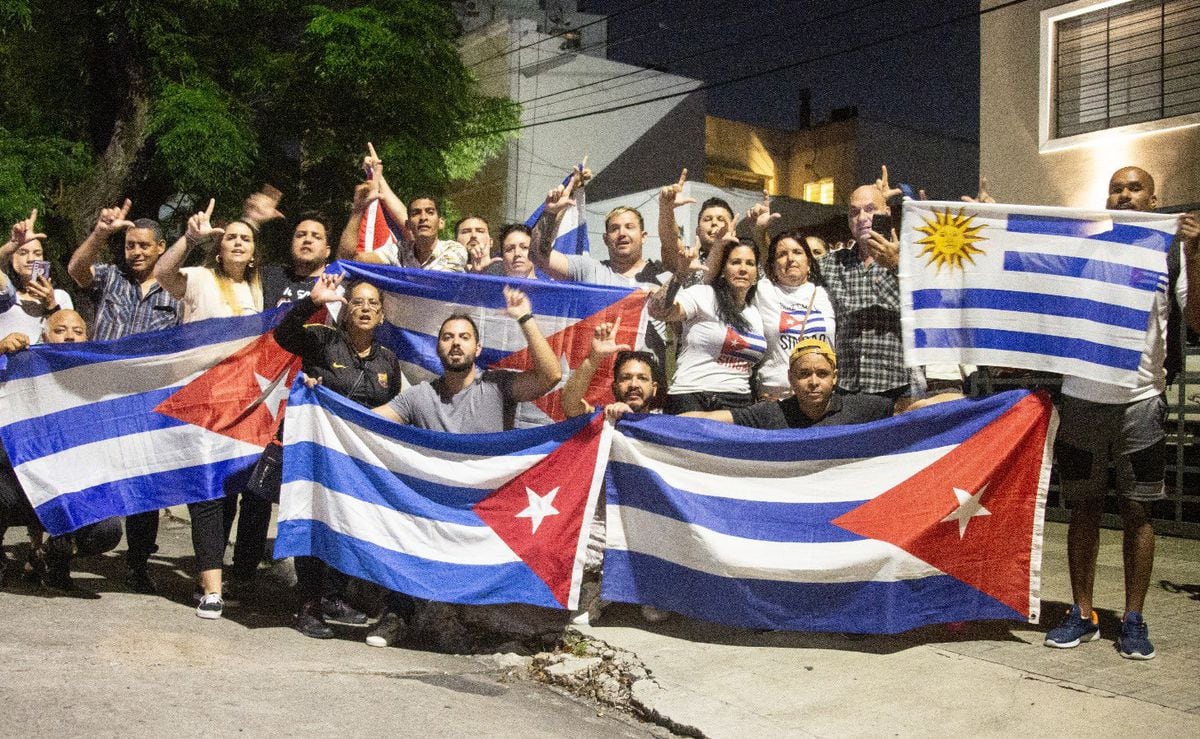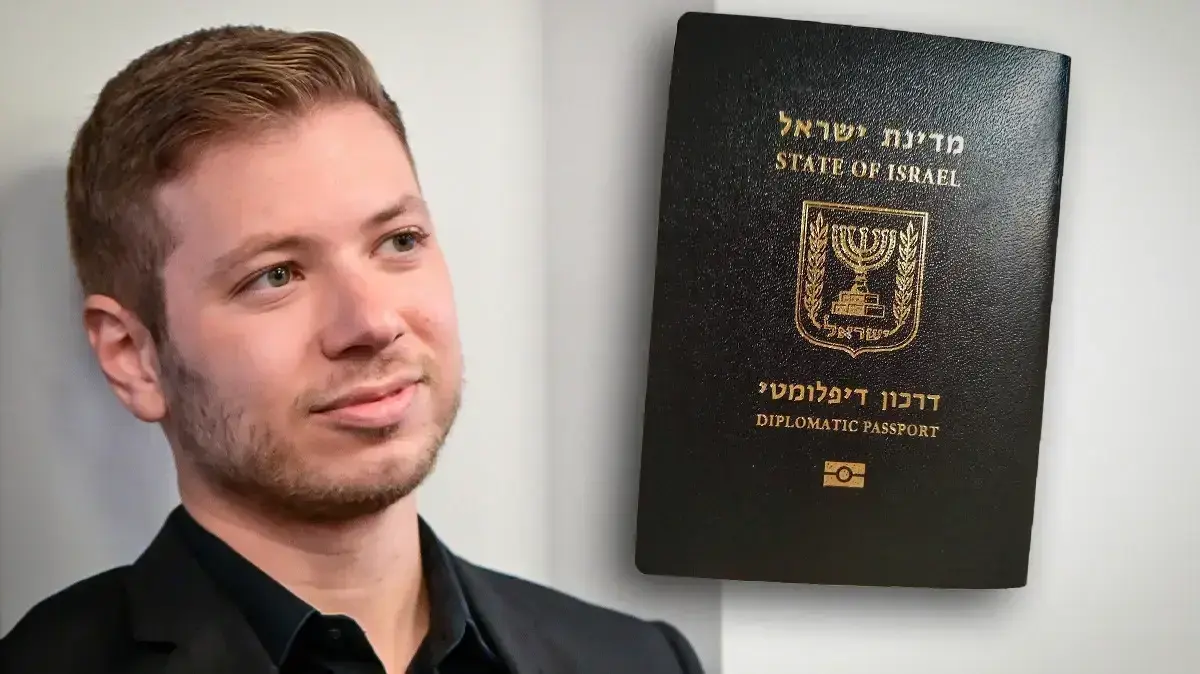Thousands of families have to wait for years to be able to live together in Germany - and German authorities are apparently using their power in such a way that this does not change.
Exclusive research by Ippen Investigativ, FragDenStaat and the ARD political magazine Kontraste shows that the Foreign Office is systematically offering a questionable deal in court: the so-called "Berlin Settlement".
Lawyers call the procedure extortionate.
By Laurenz Schreiner
Fifteen years after his wedding, Tesfay Haile is sitting in a room in the Berlin Administrative Court and has to remember: What clothes were he and his wife wearing at the time?
How long did the party go on?
What was there to eat?
A lot depends on his answers on this day in the summer of 2021.
You can influence whether the 41-year-old can finally see his wife and four children again.
Family asks for visas but has to wait more than four years
Because Haile's family is waiting in Ethiopia and is hoping for a visa for Germany.
However, the German embassy rejected her application for family reunification.
“An effective marriage has not been proven,” wrote the embassy in the Ethiopian city of Addis Ababa in autumn 2020. The family has now been separated for over four years.
The history of the Haile family can be reconstructed from the minutes of the hearing at the administrative court and other files.
Tesfay Haile's name is actually different, he asked not to give his name.
After the experience with the visa procedure, he fears future disputes with the German authorities.
also read
Questionable visa issuance: This is how the Federal Foreign Office makes family reunification difficult
Thousands of families have to wait years to be able to live together in Germany.
German authorities are apparently using their power so that this does not change.
The Foreign Office systematically offers a deal in court: the “Berlin Settlement”.
This is shown by research by Ippen Investigativ, FragDenStaat and the ARD political magazine Kontraste.
Questionable visa issuance: This is how the Federal Foreign Office makes family reunification difficult
His family is actually from Eritrea.
Tesfay Haile fled the country in 2016, for which a
UNHCR
report a year earlier found "systematic, widespread and serious human rights violations".
So Haile made his own way to Europe via Sudan, Libya and the Mediterranean Sea.
His wife, three daughters and son initially stayed in Eritrea and fled to Ethiopia in 2017.
The youngest child was four years old at the time.
Because their visa applications were rejected, the Haile family sued.
After more than two hours of negotiation, there is a decision: The man's answers were credible, he could even remember the food at the wedding, and there was an Eritrean national dish.
In addition, an hour-long wedding video supported his descriptions.
Hailes family is allowed to enter from Ethiopia - but the Foreign Office has one condition: The Hailes would have to withdraw the lawsuit and pay the costs.
Research shows: The questionable Visa deals have a system
Research by
Ippen Investigativ
*
, the
ARD
policy
magazine
Kontraste
and the transparency
platform FragDenStaat
show that the Foreign Office systematically offers migrants this deal in court: Visa is only available in court if the lawsuit is withdrawn and the costs are paid. because otherwise they would have to wait a long time for a verdict with an uncertain outcome. The Foreign Office thereby avoids a legal defeat - also because the Administrative Court of Berlin regularly cooperates in this practice. As a result, a practice has emerged over the years with which the Federal Foreign Office saves money and the visa procedures for family reunification are delayed.
How often such cases end up in court is shown by internal statistics from the ministry, which are
exclusively available to
Kontraste
,
Ippen Investigativ
and
FragDenStaat
.
Since 2017, around 20,000 proceedings have been conducted against the Federal Foreign Office in which the authority initially refused to issue a visa.
Around 6200 families got a visa in the end.
In 95 percent of these proceedings, in 5,855 families, no verdict was reached - instead, the Foreign Office offered the families an agreement such as the “Berlin Settlement”.
Months of research reveal the Federal Foreign Office's visa practice
Ippen Investigativ
,
Kontraste
and
FragDenStaat spent
several months speaking with lawyers, those affected, refugee helpers, judges, politicians and representatives of NGOs, attending court hearings, analyzing court documents and evaluating statistics on the outcome of the court proceedings .
The strategy of the Foreign Office of proposing such a deal to those affected is known among numerous migration lawyers as “Berlin blackmail”.
The disadvantages for migrants are numerous: These “comparisons” prevent the existence of valid case law which authorities and other applicants could invoke.
This is a problem: embassies in the countries where families apply for a visa should, according to the Foreign Office, orient themselves on the current case law.
Judges too often refer to existing judgments.
But if there are no positive judgments for immigrants, there are no so-called precedents.
So nothing changes in the practice for families who want to submit applications in the future.
In the end, the costs for the court and lawyer are borne by the immigrants, mostly in the four-digit range - less if legal aid is granted.
For those seeking protection in Germany, who often only have poorly paid jobs, this can be a high amount.
Foreign Office saves millions through questionable visa deals
This saves the Federal Foreign Office a lot of money.
The exact sum cannot be calculated because the average costs of the procedures are not known.
However, if you assume around 2000 euros per procedure (court and lawyer fees), the authorities will save around one million euros annually on the 300 to 500 comparisons we have determined per year.
The Federal Foreign Office replied to a press inquiry that there were only a few cases where there were any complaints.
A total of 100,000 visas are issued each year for family reunification.
According to the Foreign Office, the fact that many legal proceedings end with a settlement can mainly be explained by the fact that "all the evidence required for issuing a visa is only presented in the course of the proceedings".
Comparisons are "in the interests of the applicants", since the settlement saves them time and money.
+
The four children of the Haile family.
© private
Tesfay Haile's family has been in Germany for a few weeks. It is the beginning of October and the family lives in a shared accommodation in Berlin-Spandau, white containers are close together. Tesfay Haile is excited, he is supposed to change accommodation with his family at lunchtime. When he thinks back to the years before, he speaks more softly. In retrospect, he describes the time as “hell”. “It is very difficult to live here without children and a wife. That really hit me, ”says Haile. “I no longer had any self-confidence, I became depressed. I didn't know when my family was coming - or whether they could come at all. "
Meanwhile, Haile works as an employee at a mail order business, he earns 1,400 euros a month.
The "Berlin Settlement" was a massive financial burden on him, with the lawyer's fees alone exceeding his monthly salary.
“It's a lot of money, but the big problem has been solved.
My family came here, that matters to me, ”says Haile.
“I had no other choice.
I had to bring my children, my wife here - no matter what the cost. "
You can read all of Ippen Investigativ's research here.
* Ippen Investigativ is the research team of the Ippen publishing group, which also includes our editorial team.
We continue to research corruption and abuse of power. Do you have any tips or hints that we should follow up? Then contact us: at
recherche@ippen-investigativ.de
.









